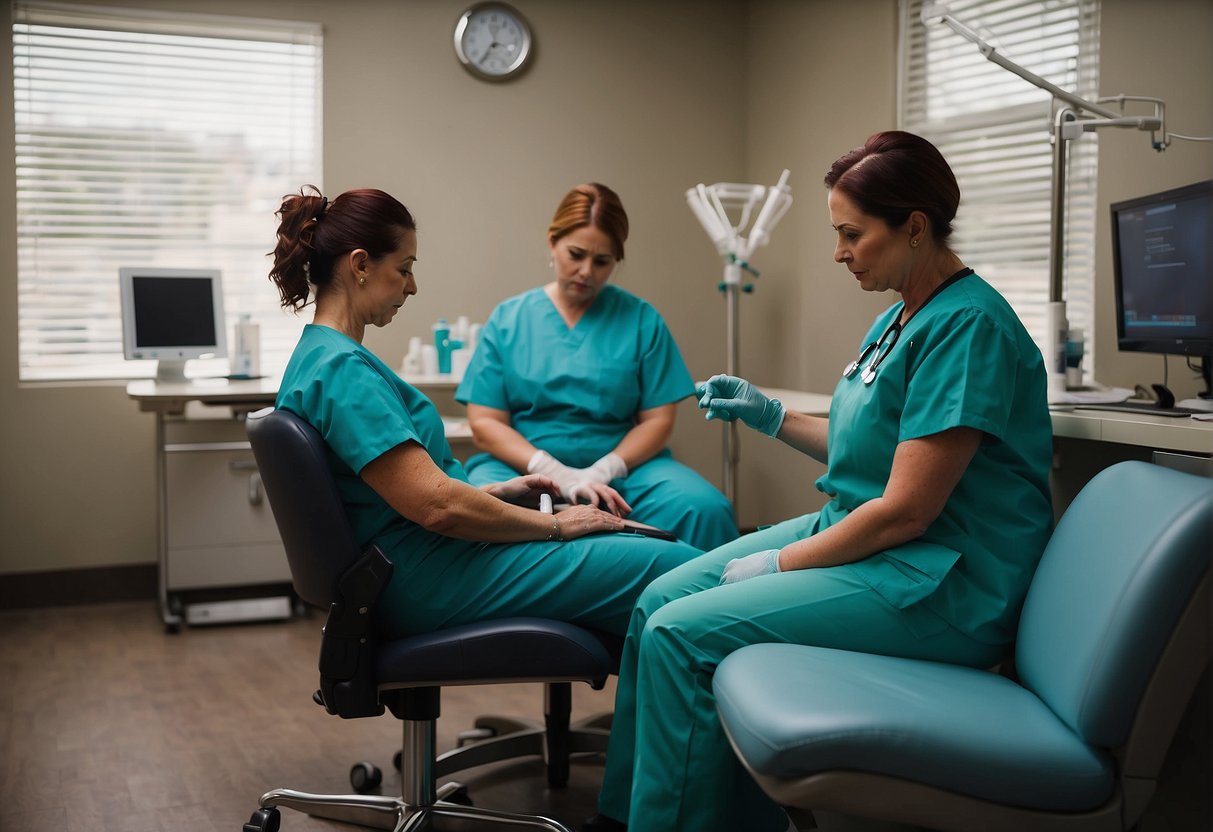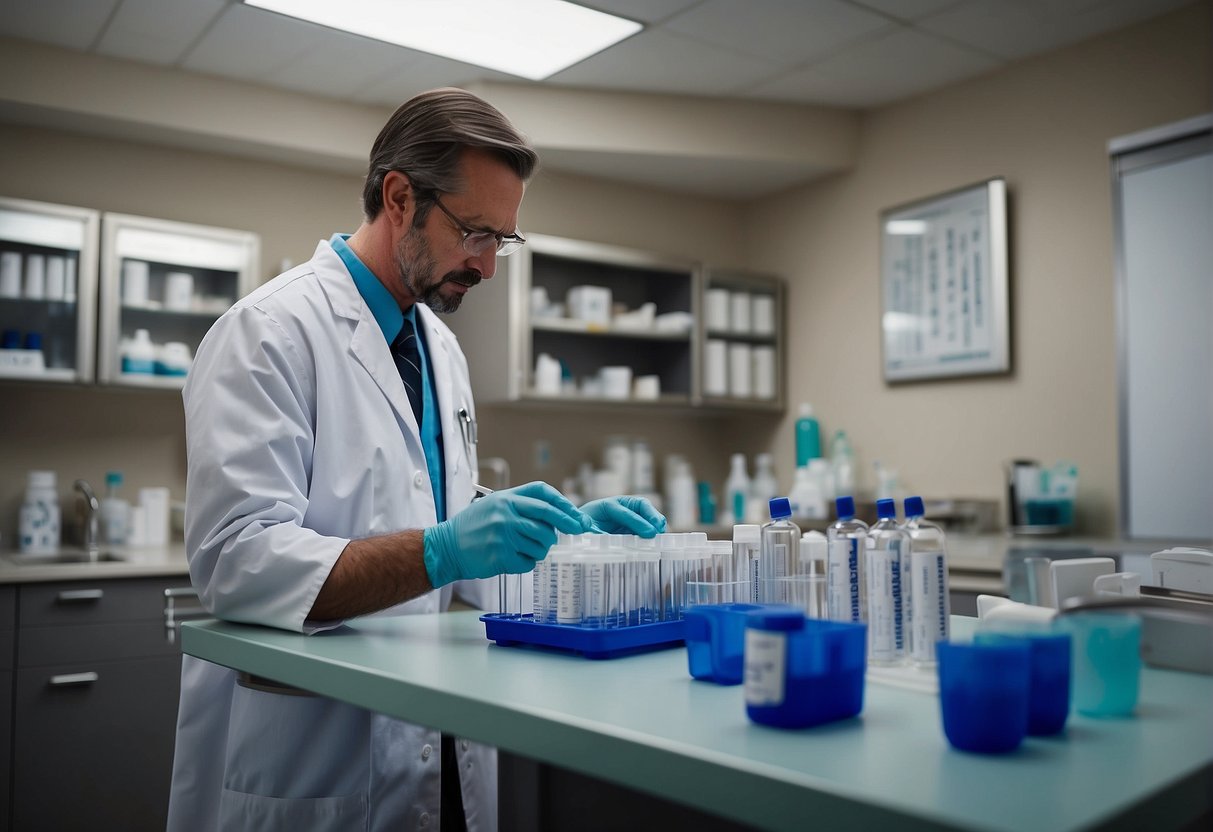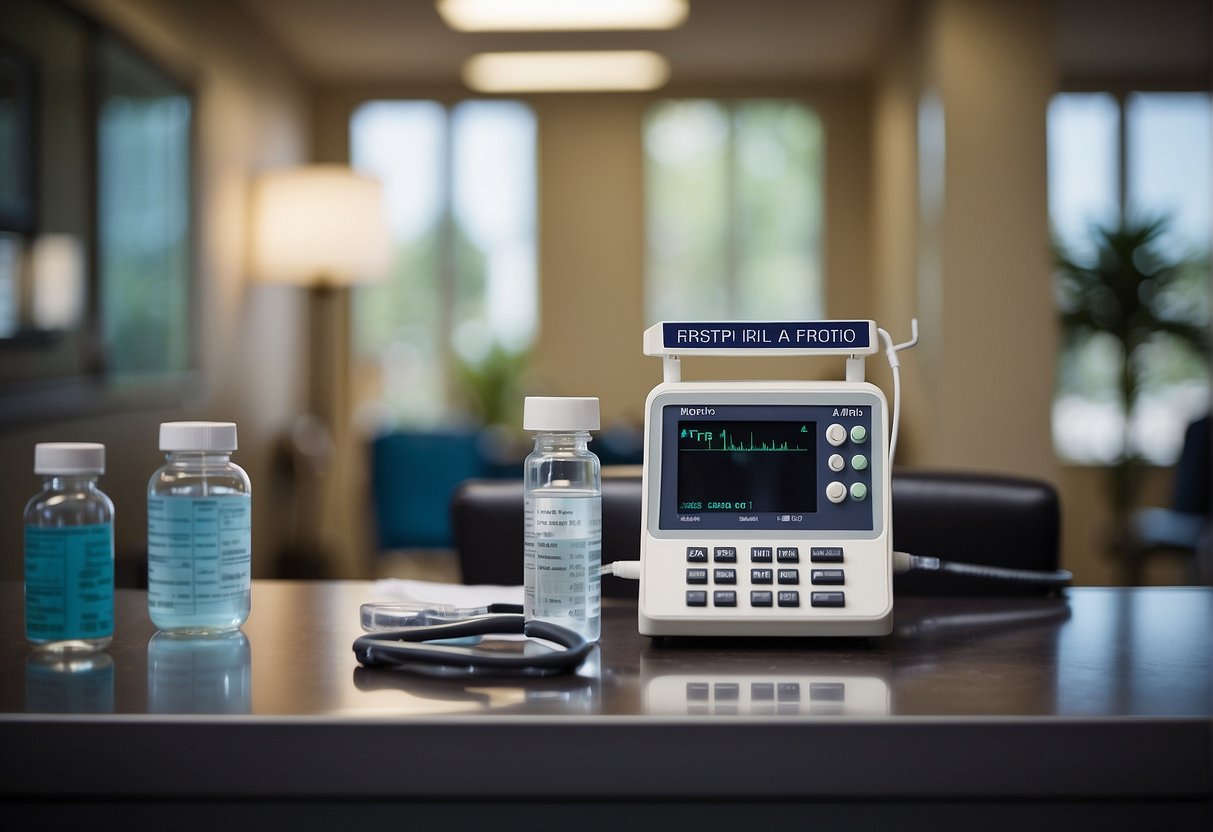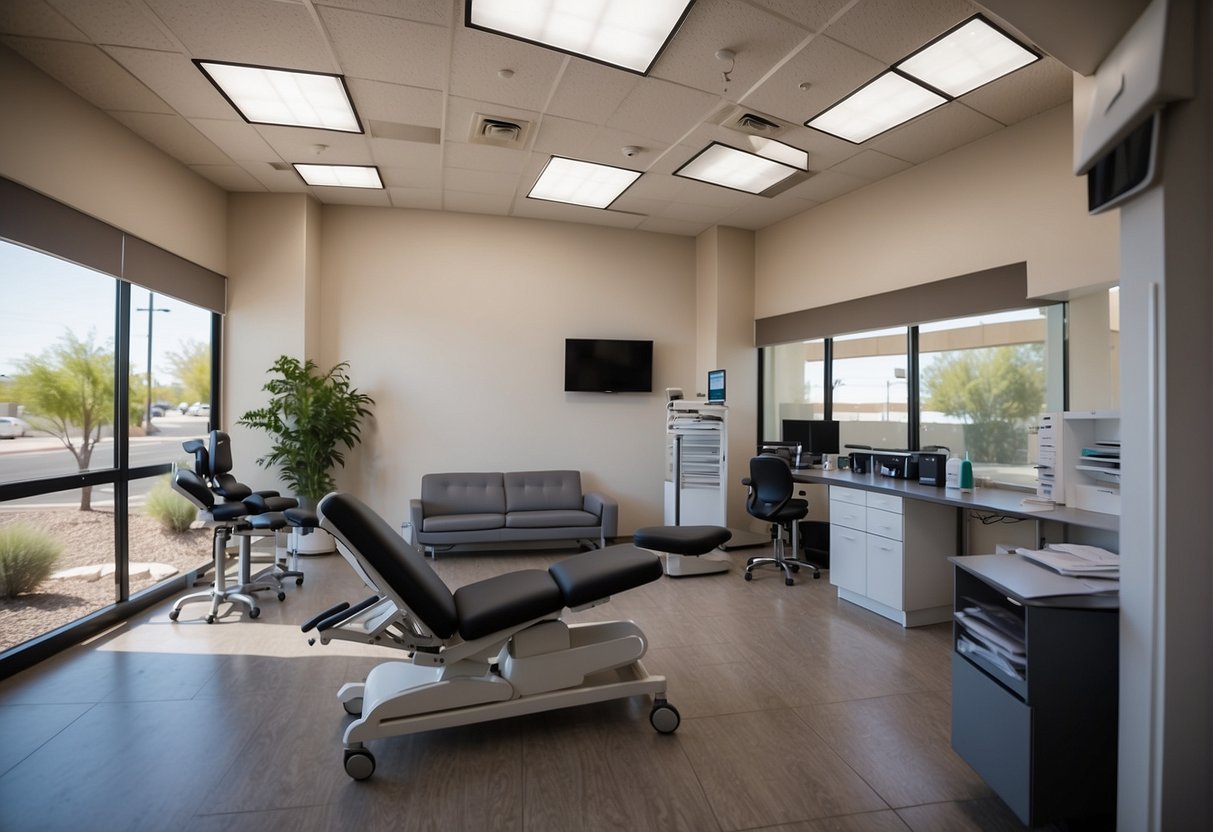TRT Phoenix.
At TRT Phoenix, we specialize in transforming lives through personalized Testosterone Replacement Therapy (TRT), designed to rejuvenate your vitality and well-being. Our Phoenix-based clinic is dedicated to providing a comprehensive and holistic approach to hormonal health, ensuring every patient achieves optimal results with the highest standard of care.


Best TRT Testosterone Replacement Therapy Injections in Phoenix, Arizona: Your Guide to Optimal Treatment Options
Testosterone replacement therapy (TRT) has emerged as a significant medical treatment for those experiencing a deficit in this critical hormone. In Phoenix, Arizona, a range of clinics and medical professionals offer TRT injections tailored to individuals’ needs—each striving to restore testosterone levels to a normal range and improve patients’ quality of life. While the process may seem daunting, understanding the basic tenets of TRT can pave the way for informed decisions about seeking treatment.

As the awareness of low testosterone’s impact on health increases, more men are seeking ways to address symptoms that diminish their daily functioning and overall well-being. Symptoms like fatigue, loss of muscle mass, and decreased libido are prompting Phoenix residents to consider the benefits of TRT injections. Clinics in the area not only offer injections but also provide comprehensive care, from the initial consultation to ongoing management, to ensure patient safety and optimize the efficacy of the therapy.
Key Takeaways
- TRT injections are designed to restore normal testosterone levels and improve quality of life.
- Recognizing symptoms of low testosterone can prompt timely consideration of TRT.
- Phoenix offers comprehensive TRT care, ensuring patient safety and effective management.
Understanding TRT and Its Importance

Testosterone Replacement Therapy (TRT) is a medically supervised treatment designed to address low testosterone levels, commonly known as “low T.” TRT can restore testosterone to normal levels, helping individuals manage symptoms associated with testosterone deficiency.
Low testosterone can manifest in various symptoms such as fatigue, decreased muscle mass, mood changes, and reduced libido. For those with clinically diagnosed low T, TRT may be recommended to alleviate such symptoms. Testosterone therapy involves the administration of testosterone, typically through injections, to supplement the body’s natural hormone production.
The goal of TRT is not only to relieve symptoms but also to improve overall quality of life. Research suggests that testosterone therapy can offer multiple health benefits, including improved energy levels, muscle strength, bone density, and sexual function. However, it is important to approach this treatment under professional medical guidance to ensure safe and effective treatment.
| Benefits of TRT | Description |
|---|---|
| Energy levels | Boosts overall energy and reduces fatigue |
| Muscle strength | Improves muscle mass and strength |
| Bone density | Increases bone density and reduces fracture risk |
| Sexual function | Enhances libido and sexual performance |
Determining the necessity for TRT involves assessing symptoms in combination with blood tests to measure testosterone levels. An accurate diagnosis by healthcare professionals in Phoenix, Arizona, ensures patients receive the most appropriate care.
TRT should be considered a personalized treatment, as every individual’s hormone needs are unique. Under proper medical supervision, TRT can be a highly effective approach to addressing the challenges of low testosterone, supporting both physical and emotional health.
Identifying Symptoms and When to Consider TRT

In the realm of hormone health, understanding when to consider testosterone replacement therapy (TRT) is vital. It is generally preceded by symptom recognition and a carefully considered need for treatment based on specific signs that suggest testosterone deficiency.
Recognizing Low Testosterone Symptoms
Key symptoms of low testosterone may manifest physically and emotionally. Men may notice a decline in sexual function, including reduced libido and erectile dysfunction. Physiologically, individuals could experience fatigue, even when well-rested, alongside a noticeable reduction in muscle mass coupled with increased body fat.
- Energy Levels: Persistent feelings of exhaustion despite adequate rest.
- Muscle and Fat Composition: Altered body composition characterized by decreased muscle tone and increased adipose tissue.
- Mood and Cognitive Function: Mood swings, irritability, and challenges concentrating may signal hormonal imbalances.
These symptoms can severely impact confidence, mood, and over time, lead to depression.
Assessing Your Need for TRT
Assessment for TRT requires more than just a recognition of symptoms. A healthcare provider should measure testosterone levels through blood tests to confirm a deficiency. Individuals observing a sustained decrease in well-being, consistent fatigue, problems with sexual performance, or other symptoms that impact daily life should consult a medical professional to evaluate the potential benefit of TRT.
- Diagnostic Tests: Necessary bloodwork evaluating hormone levels, required for a definitive diagnosis.
- Medical Evaluation: A comprehensive review of symptoms, lifestyle, and medical history can determine the appropriateness of TRT.
TRT might be recommended when symptoms are not attributable to other conditions and if testosterone levels are clinically low. It is important to note that TRT is not suitable for everyone and should be considered under the guidance of a qualified healthcare practitioner.
TRT Treatment Options in Phoenix, Arizona

In Phoenix, Arizona, men seeking testosterone replacement therapy (TRT) have several injection treatment options available. Leading clinics like Ageless Men’s Health and Men’s Vitality Center offer tailored services to suit individual needs.
Exploring Injection Therapies
Testosterone injections are a common TRT method, providing a direct hormone boost. Clinics in Phoenix typically offer testosterone cypionate or enanthate, administered bi-weekly or monthly. Patients must consider factors like dosage, frequency, and potential side effects when choosing an injection regimen.
- Injected Testosterone Types: Testosterone Cypionate, Testosterone Enanthate
- Administration Method: Intramuscular Injection
- Common Protocols: Bi-weekly, Monthly
- Considerations: Dosage Accuracy, Side Effects
Comparing Clinics: Ageless Men’s Health vs. Men’s Vitality Center
Ageless Men’s Health and Men’s Vitality Center are two prominent clinics providing TRT injections in Phoenix, AZ. Both clinics conduct comprehensive patient evaluations, but their approach and service offerings differ.
- Ageless Men’s Health:
- Services: Personalized TRT plans, consistent follow-ups
- Location & Availability: Multiple locations for accessibility
- Men’s Vitality Center:
- Services: Integrated health services, focus on overall well-being
- Location & Availability: Central location, with a focus on convenience
Patients should evaluate both clinics based on the quality of care, expertise of medical staff, and patient testimonials before committing to a treatment plan.
The TRT Process: Consultation to Treatment

Beginning TRT (testosterone replacement therapy) in Phoenix involves a structured approach, starting with an initial consultation and progressing through to a personalized treatment regimen. Patients play an active role in each step, working with healthcare professionals to ensure the therapy aligns with their individual health goals.
Scheduling Your Initial Appointment
The first step for patients seeking TRT in Phoenix is scheduling an initial appointment with a qualified physician. This appointment is crucial as it sets the stage for understanding the patient’s needs and expectations. During this time, patients should provide a comprehensive medical history and articulate any symptoms they are experiencing related to low testosterone levels.
Undergoing a Personalized Assessment
Once the initial appointment is set, patients will undergo a personalized assessment to gauge their specific requirements. This typically involves:
- Comprehensive blood tests: which are conducted to measure testosterone levels and other vital health indicators.
- Physical examination: performed by the physician to look for signs of hormone imbalance.
- Review of symptoms: which allows the physician to understand how low testosterone may be affecting the patient.
The information garnered from labs and assessments informs the creation of personalized treatment plans that resonate with the patient’s health status and goals.
Follow-Up and Monitoring
After beginning TRT, follow-up and monitoring are essential components of the process. Each patient receives:
- Regular appointments: to track progress and adjust therapy as needed.
- Periodic blood tests: to monitor testosterone levels and ensure they are within the desired range.
- Continuous evaluation: of symptoms and health improvements.
Physicians closely review these results to fine-tune treatment plans, ensuring optimum efficacy and safety for the patient.
Maximizing TRT Efficacy: Lifestyle Considerations

Optimizing testosterone replacement therapy (TRT) outcomes involves more than just regular injections; it encompasses a holistic approach combing tailored nutrition and exercise. Diet and physical activity are pivotal in enhancing vitality, strength, libido, and overall drive.
Incorporating Diet and Nutrition
Diet and Nutrition play a critical role in maximizing the benefits of testosterone replacement therapy. Specific nutrients can have a direct impact on hormone levels and should be incorporated into the daily diet:
- Zinc: Vital for testosterone production; found in meat, shellfish, and legumes.
- Vitamin D: Linked to testosterone levels; sources include fatty fish, egg yolks, and fortified foods.
Moreover, limiting processed foods and sugars is essential as they can lead to weight gain and disrupt hormone balance, potentially mitigating the positive effects of TRT on sex drive and libido.
Exercise and Weight Loss Strategies
A regimen of regular exercise is beneficial for those on TRT, particularly weight loss and muscle-building activities:
- Resistance Training: Enhances muscle strength and optimizes testosterone efficacy.
- Cardiovascular Exercise: Aids in weight management, which is key for maintaining hormonal balance.
Resistance training can be further broken down into:
- Weight Lifting: Building muscle can raise baseline testosterone levels.
- Bodyweight Exercises: Accessible methods to improve strength without equipment.
Combining these exercises with a balanced diet enhances the likelihood of experiencing the full benefits of TRT, including an improved sense of vitality and strength.
Safety, Risks, and Ongoing Management of TRT

Testosterone Replacement Therapy (TRT) in Phoenix aims to elevate low testosterone levels, improving quality of life. However, it’s crucial to comprehend its potential risks and ensure the management of TRT is handled with safety in mind.
Understanding Potential Risks and Side Effects
When considering TRT, patients need to be informed about the potential risks and side effects associated with this hormone therapy. It’s known that TRT can pose risks, including but not limited to:
- Cardiovascular Health: Research suggests a possible link between TRT and an increased risk of heart disease.
- Prostate Health: There is a debate on TRT’s role concerning prostate health, and monitoring is recommended.
Additionally, common side effects may involve:
- Emotional changes such as increased stress or aggression.
- Changes in sexual function, potentially causing infertility.
- Fluctuations in cognition and the occurrence of brain fog.
Patients must consult with a knowledgeable TRT doctor for appropriate assessments before and during treatment.
Ensuring Safe Administration and Follow-Up Care
Safe administration of TRT injections and meticulous follow-up care are crucial for patients in Phoenix. To initiate a TRT protocol safely, several steps need to be taken:
- Comprehensive Evaluation: Prior to starting TRT, a full medical examination to assess the symptoms of low testosterone and potential contraindications.
- Dosage Determination: Dosages should be individualized based on the patient’s hormone levels, overall health, and treatment goals.
For ongoing management:
- Regular Check-ups: Scheduled visits to monitor hormone levels and adjust treatment as necessary.
- Monitoring Side Effects: Vigilant observation for any signs of side effects or health changes, such as blood glucose levels for those with diabetes.
Patients on TRT should maintain open communication with their healthcare provider to ensure that the therapy continues to align with their health status and quality of life.
Frequently Asked Questions

Selecting the right Testosterone Replacement Therapy (TRT) in Phoenix can be pivotal for achieving optimal results. This section answers common questions to guide those seeking top-quality TRT injections.
What are the most reputable TRT clinics in Phoenix, Arizona?
Top clinics in Phoenix known for their reputable TRT services include Men’s Vitality Center, Elite Testosterone Replacement, and Phoenix Men’s Health Center. These clinics have been recognized for their experienced medical teams and patient satisfaction rates.
How do I choose the best doctor for testosterone replacement therapy in the Phoenix area?
When seeking a qualified doctor for TRT in Phoenix, look for board-certified endocrinologists or urologists with specialized training in hormonal therapies. Patient reviews, clinic accreditation, and the physician’s experience should be considered.
What forms of injectable testosterone are available and highly recommended by Phoenix TRT specialists?
Phoenix TRT specialists often recommend testosterone cypionate and testosterone enanthate injections due to their efficacy and predictable absorption rates. These injectables are commonly prescribed and backed by clinical experience.
What is the typical cost range for testosterone replacement therapy in Phoenix?
TRT costs in Phoenix vary based on treatment plans but typically range from $300 to $1,000 per month. This pricing varies with the dosage required, clinic selection, and whether the cost includes ancillary services.
How do I find the best TRT treatment option for my needs in Phoenix, AZ?
Personalized TRT treatment options can be identified by consulting with a specialist who will evaluate your hormonal levels, health history, and lifestyle. They will tailor a treatment plan suitable for your individual needs and preferences.
What are the expected results and timeline for effective TRT from Phoenix-area medical clinics?
Effective TRT often results in improved mood, increased energy, muscle mass, and sex drive. Patients may begin noticing improvements within 3 to 6 weeks, with significant changes occurring after continued therapy as directed by their Phoenix-based TRT provider.
